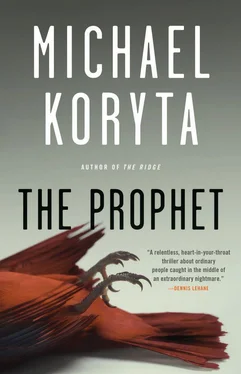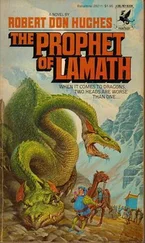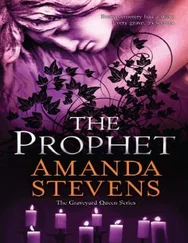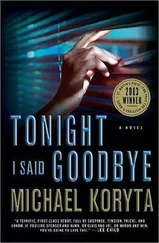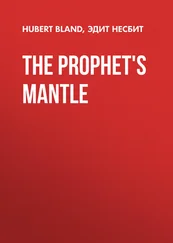“Then I’ll hustle right along,” Adam said, and hung up. He bounced the phone in his palm and stared at the wall and eventually he became aware of a pain in his jaw and realized how tightly he was clenching his teeth. He set the phone down and opened the refrigerator. There were five beers left in the twelve-pack he’d bought last night.
“See you in five, Franchise,” he said aloud, and then he opened one of the Coronas and took another in his free hand and walked outside to drink in the cold.
Kent was glad Adam had picked the school. He didn’t want to chase his brother through the town’s grunge bars and he certainly didn’t want to see him at either of the two places he called home: one that belonged to a married woman with an inmate husband, or one that belonged to bad memories. Carefully preserved bad memories.
He knew when he hung up that Adam would take his sweet time appearing. He had to do that, had to try to establish the alpha status in whatever sad way possible. Kent had said he did not want to wait, and that meant he would be made to wait.
The coach’s office and locker rooms at Chambers were in a single-story concrete-block building behind the end zone. When he pulled in and parked in the empty lot he could see posters and silver and red streamers covering the walls, handiwork of the boosters and parents and cheerleaders. PLAYOFFS: WIN OR GO HOME! one of the signs shrieked.
He was so sick of going home with a loss he could hardly bear it, so sick of uttering the same damned reassurances of how he was proud of his kids and proud of their character and proud of the season, the season that had ended with his kids watching their opponents celebrate.
It wasn’t supposed to happen again this year. Not with this team. They were too good, they were too well prepared, they were too experienced. Every part was there, every element a championship squad needed was in place. They were the best this town had ever seen. Better than the ’89 team by a mile. But the ’89 team had put a trophy in the case, they had rings on their fingers. Their work was done. His was not.
He had one of those rings himself, but it didn’t count. He’d been a freshman that season, never took a snap in the playoffs, just stood on the sidelines with a clipboard and charted plays while Pete Underwood, the senior starter, ran the careful, plodding offense, the world’s most boring offense, a two-running-back set that asked very little of the quarterback beyond the ability to complete a handoff. It was tedious to watch, but Walter Ward was not interested in entertaining, he was interested in wins. They had a big bruising line and a committee of big bruising backs, and they just wore teams down. In the state championship they’d used fifteen straight running plays on their final drive. Fifteen. The opposing defense had everyone down in the box, essentially ignoring the threat of a vertical passing route, committed to stopping Chambers up front, confident that if they did that, they’d win the game, because Underwood was not going to beat them with his arm. And Coach Ward had looked at that, at the way his team was being dared to pass, and he’d kept running the ball. All the way into the end zone.
Prophet right.
Prophet left.
Prophet right.
Prophet right.
Prophet right.
Never showing a trace of emotion, no hint of fear, not even when they got to fourth and two, just kept calling those plays in a flat, steady voice, everyone in the stadium knowing exactly what was coming, including the defense, all of it on Adam, who was the prophet, who was the telltale blocker out front, promising contact. Coach Ward just stood there with his arms folded across his chest and gave it to them again and again, relentless and confident— You must stop this, and you will not be able to.
How the fans had loved that! You wanted to talk about smashmouth? Watch a fifteen-play drive against the state’s best defense in which the ball was never passed. Adam had been out in front of the ball carrier the whole way. He’d played every down of the state championship game, both sides of the ball, and somewhere in Ohio there were ex-linebackers with loose teeth who remembered him well. They used four different running backs on those fifteen handoffs, but just one lead blocker for all of them. It was the point of the play—promise package, they called it. When Adam came in on the offensive side of the ball, you were going to get a run, and you were going to have him out front. Every time. Usually he rotated, usually Ward saved most of his strength for defense and short-yardage situations, but not that drive. Fifteen straight.
The way the crowd had roared after that drive… Kent hadn’t heard anything else like it in high school football. Doubted he ever would again. It had been ugly football, mean and nasty, but somehow it connected with hearts in the stands because of that. It took Kent a while to understand the reason exactly, and with it came a better understanding of the game, why it inspired such a fierce pride in towns like Cleveland and Green Bay and Pittsburgh. Like Massillon. Like Chambers.
The way they’d roared that night—people cried in the stands, he remembered that, would never forget it, people cried— wasn’t just because Chambers had won the game. At that point, in fact, victory had hardly been assured; there were three minutes left to play, and the top-ranked team in the state had the ball and a last chance to regain the lead. No, it was because they’d started with their backs against the wall, jammed against their own goal line with a deficit and a ticking clock and then lined up in a way that said, We will have to take a beating with this approach, there is no other way, and then they’d taken it, and taken it, and taken it, until suddenly they were administering it.
That was why people cried in the stands.
It had taken Kent a long time to understand it.
Tonight he was in the locker room alone, and when he flicked on the overhead fluorescent lights, the place picked up a white glow, and at the end of the locker room he could see the photograph of the 1989 team, the only team picture that he’d ever allowed to hang in the locker room. It was not all about wins and losses, he reminded his boys every day, but then there was just the one team picture hanging in the room.
Because they won. Right, Coach? Why else? And you’re in that picture but you don’t belong in it, and all of the pictures you do belong in, well, they don’t belong on the wall.
He went through the locker room and into his office, fired up the computer and projector and began to watch video. A little more than an hour passed before Adam arrived.
In through the locker room door without a knock, and then Kent could see him standing out there, gazing around. The door to the coach’s office was open and the lights from the video painted it and its lone occupant with that white glow, but Adam didn’t even glance that way, just stood with his back to the office and took in the rest of the room, and Kent knew he was both remembering old ghosts and assessing the ways in which it had changed since the days when they were not ghosts at all.
Kent rose from the chair and walked out to join him. Adam looked at him for a minute. “Not even a handshake, Franchise?”
They shook hands. Adam’s grip was stronger. One of the reasons he liked to shake hands. He enjoyed intimidation in all of its forms, brutal to subtle. Kent was not a small man—six-two and 190 pounds that still saw several hours a week in the weight room—but around Adam he was not just the little brother in terms of years. When he’d signed with Ohio State, Adam had stood six-four barefoot, with a forty-five-inch chest and thirty-one-inch waist. Ridiculous proportions. He ran the forty in 4.7 seconds, which wasn’t blazing speed, not Colin Mears speed, but was awfully damn fast. Twenty-two years had taken the speed from him, but it had hardly made a dent in the muscle, and somehow that annoyed Kent. Maybe his brother was always in a gym, and he just didn’t know it. He doubted it, though. So how did he do it? How could a man drink like that and live like that and still look like that?
Читать дальше
